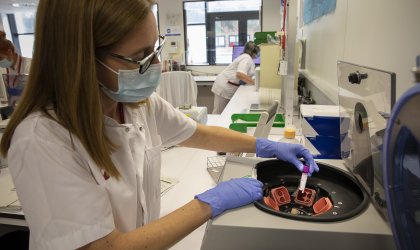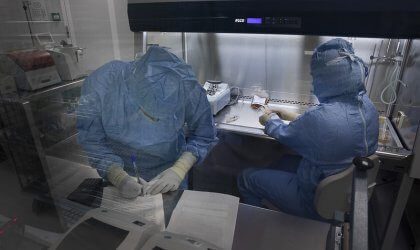BST research to produce lab-grown red blood cells receives €1 million from “la Caixa” Foundation

- The research is aimed at treating patients with sickle cell anaemia, a serious disease that requires chronic blood transfusions
- It is led by the Blood and Tissue Bank in collaboration with the University of Bristol
- Sickle cell anaemia mainly affects people of African descent and has become much more prevalent in Spain as a result of migration
- The challenge of finding compatible blood for these patients is compounded if they have a rare blood group, as donors in Europe are predominantly Caucasian
- This is one of the 33 projects selected in this year’s CaixaResearch call for health research proposals
New impetus for in vitro red blood cell production. A research project led by the Banc de Sang i Teixits (Blood and Tissue Bank) to produce lab-grown red blood cells for the treatment of patients with sickle cell anaemia will receive a grant of almost €1 million from the “la Caixa” 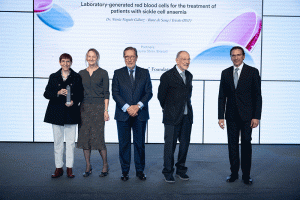 Foundation. This is one of the 33 research projects selected as part of CaixaResearch 2023, a call for proposals for health research organised by this institution.
Foundation. This is one of the 33 research projects selected as part of CaixaResearch 2023, a call for proposals for health research organised by this institution.
The research, led by Dr Núria Nogués, head of the Immunohaematology Laboratory at the Blood and Tissue Bank, will receive a total of €941,350 and will be carried out in collaboration with the University of Bristol in the UK, under the direction of Dr Jan Frayne.
Researchers at the Blood and Tissue Bank’s Immunohaematology Laboratory have been investigating ways to produce red blood cells in the laboratory for years. This research involves the creation of a bank of precursor cells, derived from the stem cells of blood donors, that are committed to forming red blood cells. The in vitro maturation of these precursor cells should enable the production of lab-grown red blood cells, which is the aim of the funded research.
The production of these cells, which are responsible for transporting oxygen from the lungs to the rest of the body, is a breakthrough that science has been working towards for some time.
A disease on the rise for 15 years
More than 7 million people worldwide have sickle cell anaemia, an inherited red blood cell disorder that affects haemoglobin, the protein that 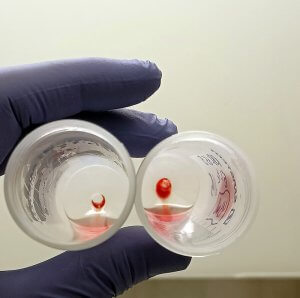 carries oxygen to the body’s organs and tissues. In Europe, the incidence of this anaemia has increased exponentially over the last 15 years as a result of migration, as people of African descent are the most affected.
carries oxygen to the body’s organs and tissues. In Europe, the incidence of this anaemia has increased exponentially over the last 15 years as a result of migration, as people of African descent are the most affected.
Blood transfusions are essential in the treatment of this disease, but can be a complicated challenge for patients with unusual blood groups due to the difficulty of finding compatible blood, as most donors in Spain are Caucasian.
The red blood cells of people with the disease are fragile and break easily, causing chronic anaemia. They are also not flexible and deformable like normal red blood cells, but rigid and crescent- or sickle-shaped, which impedes blood flow and eventually blocks the narrowest blood vessels, the capillaries. When this happens, a lack of oxygen to the tissues causes pain and organ damage.
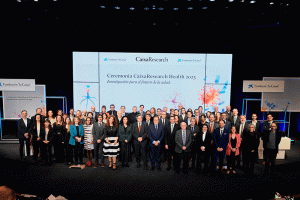 The aim of the BST research project is to develop an efficient and scalable system for the in vitro production of red blood cells with rare blood group combinations typical of African populations and extremely uncommon in the European donor pool.
The aim of the BST research project is to develop an efficient and scalable system for the in vitro production of red blood cells with rare blood group combinations typical of African populations and extremely uncommon in the European donor pool.
To this end, red blood cell precursor cell lines will be generated from donors of African origin selected for their rare blood group profile.
This year’s CaixaResearch call for proposals has selected 33 research projects, nine of which are led by Catalan research centres. All will receive a grant of up to €500,000 or up to €1 million. The call aims to stimulate top-level biomedical research with high social impact in basic, clinical and translational research.
More information:
Generem línies de cèl·lules que són l’avantsala per obtenir glòbuls vermells al laboratori


